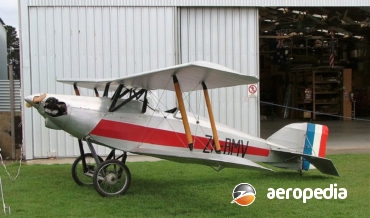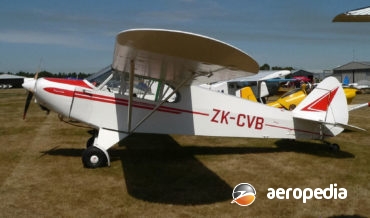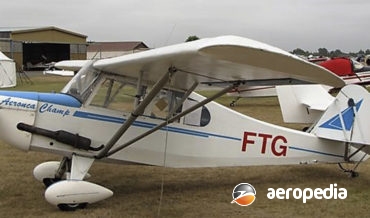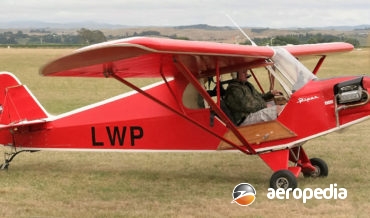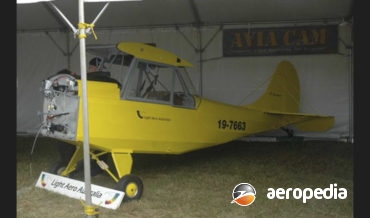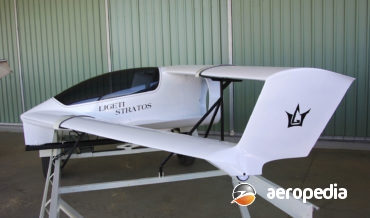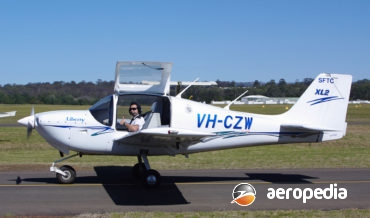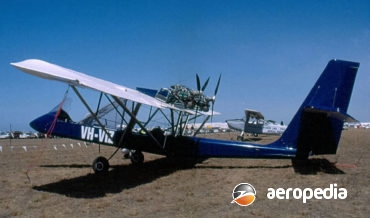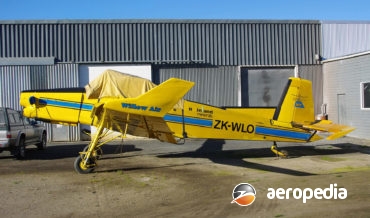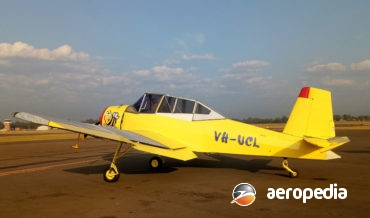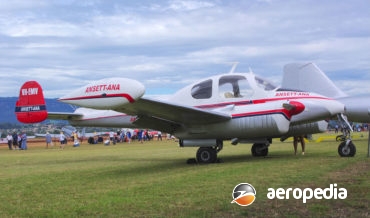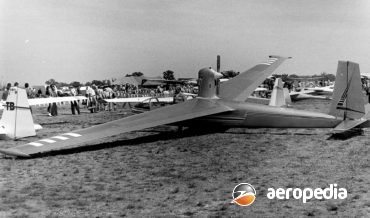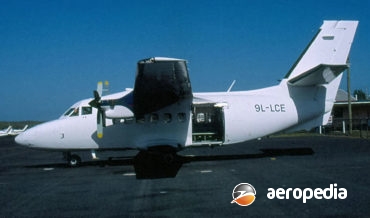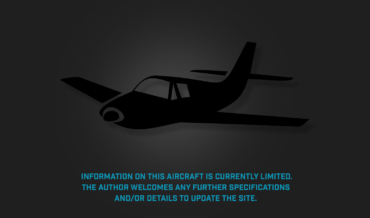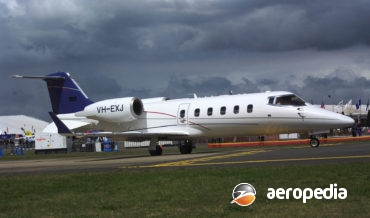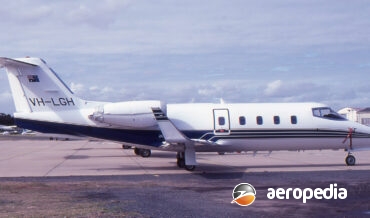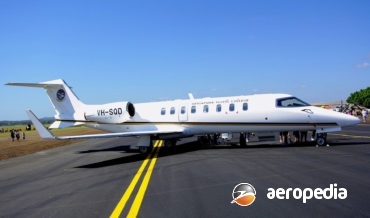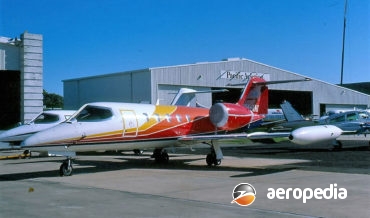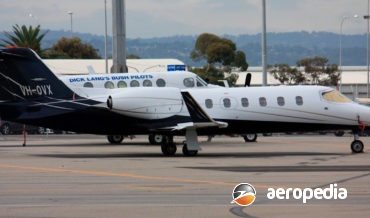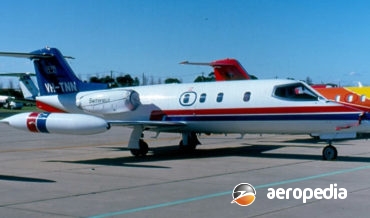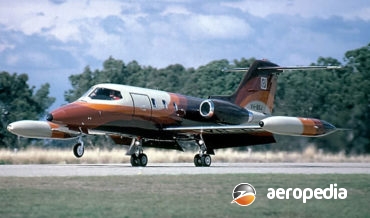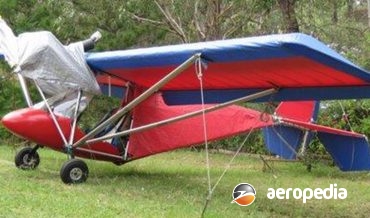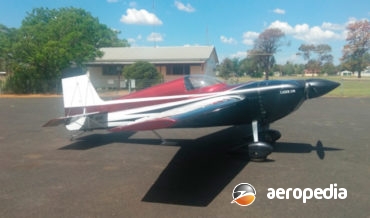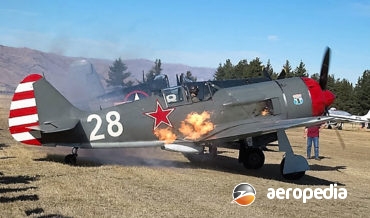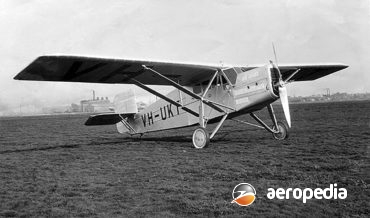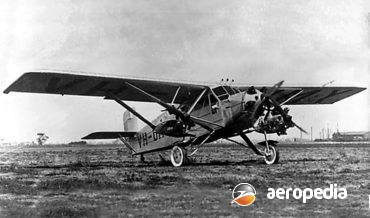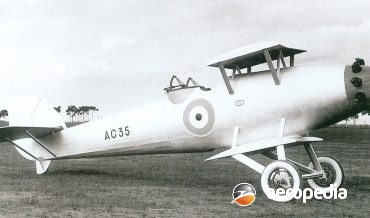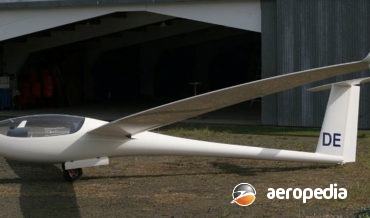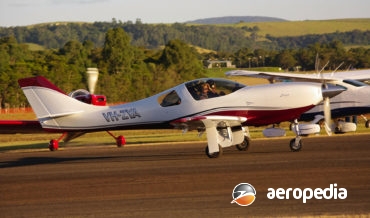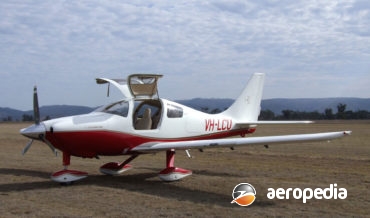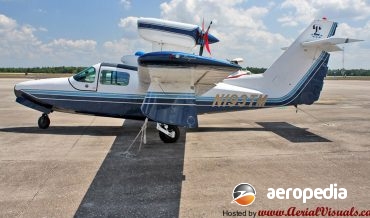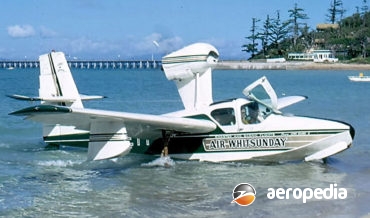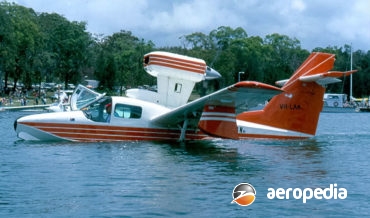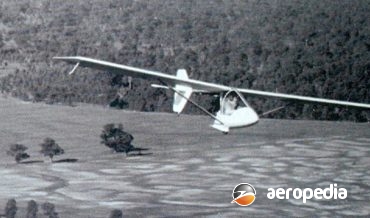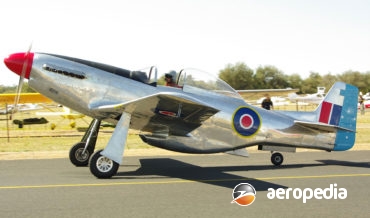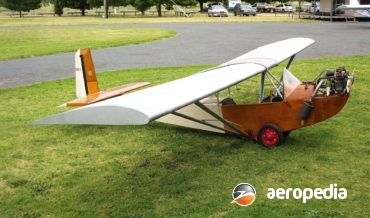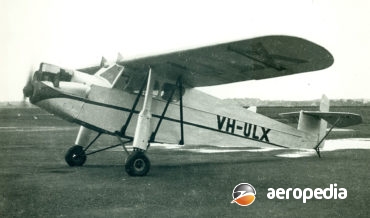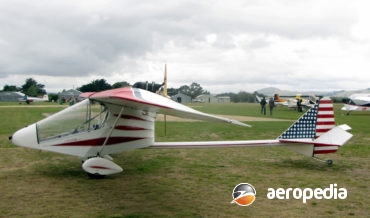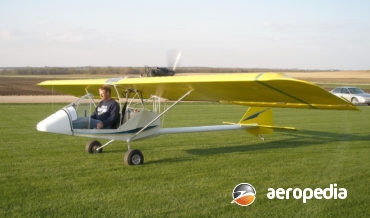All Contents
Contents
The Lincoln Sports light biplane for amateur construction was designed in the USA in the 1920’s by Mr S Swanson of Vermillion, North Dakota.
David C. Eyre
- May 8, 2019
The LM-5X Super Cub was first introduced to the light aircraft market in 1993, being an 88% scale copy of a Piper J-3 Cub, the aircraft being constructed of wood covered in dacron. It is a high-wing machine with a high-wing with a tractor engine and a tailwheel.
David C. Eyre
- May 8, 2019
Light miniature Aircraft of Okeechobee, Florida, is a company which has produced replicas of light aircraft of the 1950s to various scale, these including the LM-2X-2P 7/8th scale replica of a Taylorcraft.
David C. Eyre
- May 8, 2019
This is one of a series of light aircraft kits produced by Light Miniature Aircraft of Keechobee, Florida in kit form for amateur construction.
David C. Eyre
- May 8, 2019
The T-2 Sundowner is a two-seat in tandem light sporting aircraft produced by Light Aero Australia, this company entering the field of producing light kit aircraft in 2010, and displaying the prototype of the T-2, incomplete, at the 2011 Natfly event at Temora.
David C. Eyre
- May 8, 2019
Charles Ligeti in 1982 built a hang-glider for the Australian Bird Man Rally and then went on to design the Statos, the prototype flying on 25 April 1985 for 45 minutes.
David C. Eyre
- May 8, 2019
The XL-2 was designed by Anthony Tiarks and built in the United Kingdom as a two-seat low-wing, general aviation aircraft in the late 1990s by Liberty Aircraft, a subsidiary of the company which previously conceived and marketed the very successful Europa kitplane.
David C. Eyre
- May 8, 2019
Of similar configuration to the Maxair Drifter, the Air Cam is a two-seat, open-cockpit, light twin-engine aircraft intended for aerial photography which has utility applications, and which is marketed by Leza-Lockwood Corp of Sebring, Florida.
David C. Eyre
- May 8, 2019
The Let Z-37 Cmelak (Bumblebee) was an agricultural aircraft designed and built in Czechoslovakia, work commencing in 1961 and the prototype the XZ-37 first flew on 29 March 1963.
David C. Eyre
- May 8, 2019
The Z-37 Cmelak (Bumble Bea) was designed and built by LET Narodni Podnik, the LET National Corporation which evolved from a branch of the Skoda series of companies.
David C. Eyre
- May 8, 2019
The Morava was designed by Ladislav Smrcek as a four/five seat successor to the Aero 145, and the prototype, the first of three (OK-LNA), was flown for the first time on 8 April 1957.
David C. Eyre
- May 8, 2019
The Blanik L-13 glider was a two-seat trainer produced by Let Kunovice in Czechoslovakia in the 1950s, the prototype making its first flight in 1956 and more than 3,000 examples have been delivered in a variety of models over many years. It is said to be the most widely used
David C. Eyre
- May 8, 2019
The L-410 series was designed by the Letov organisation as a light transport and feeder liner for operation in the eastern block. The prototype (OK-YKE) flew for the first time on 16 April 1969 powered by two 533-kw (715-eshp) Pratt & Whitney Canada PT6A-27 turboprops.
David C. Eyre
- May 8, 2019
In the late 1920s Mr T D Leech, a lecturer in civil engineering at the Sydney University, with the assistance of five graduates from the University, designed and built a biplane known as the Australian Maid.
David C. Eyre
- May 8, 2019
The Learjet 60 was announced on 3 October 1990 as the successor to the Learjet 55C, the first proof-of-concept aircraft flying with a Pratt & Whitney PW 305 turbofan on 18 October 1990, flying with two PW 305s in May 1992.
David C. Eyre
- May 8, 2019
The Longhorn 55 was a development of the former Learjet series, being a mating of the wing used on the Series 28 and 29 with a new designed fuselage possessing a 50% greater cross section.
David C. Eyre
- May 8, 2019
The design of the Learjet 45 was announced at the NBAA convention in the United States on 29 September 1992. The prototype/first production aircraft (N45XL) was first flown on 7 October 1995, being followed by the second aircraft (N452LJ) on 6 April 1996.
David C. Eyre
- May 8, 2019
For many years the Learjet was marketed as the fastest business jet in production, and more than 1,500 examples of a variety of models have been built.
David C. Eyre
- May 8, 2019
The Learjet 31 is one of a series of business and executive jet aircraft produced by Learjet, which is a subsidiary of Bombardier Aerospace.
David C. Eyre
- May 8, 2019
For many years the Learjet was marketed as the fastest business jet in production. It was designed by William P Lear in Switzerland as the SAAC-23, being eventually produced in Wichita, Kansas, the prototype Model 23 flying for the first time on 7 October 1963.
David C. Eyre
- May 8, 2019
For many years marketed as the fastest business jet in production, the Learjet was also the most well known and one of the best selling, with some 745 turbojet examples having been delivered in the 23, 24, 25, 28 and 29 series.
David C. Eyre
- May 8, 2019
The Lea Kestrel was designed by Cecil Lea under the provisions of ANO 95.10 and was built in prototype form following the granting of a Technical Data Package.
David C. Eyre
- May 8, 2019
The Z-2300 was designed for unlimited class competition aerobatics and is a two-seat development of the single-seat Z-300, which itself was developed from the Rebel 300.
David C. Eyre
- May 8, 2019
One of the important design bureaus in the Soviet Union during World War II was that headed by Semyon Alexse’evich Lavochkin.
David C. Eyre
- May 8, 2019
The Lascoter single-engine cabin monoplane was designed by Mr W S Shackleton, a British designer, who visited and was resident in Australia for a period in the 1930s.
David C. Eyre
- May 8, 2019
The Lasconder was the second commercial aircraft designed and built by the Larkin Aircraft Supply Co Ltd (LASCo).
David C. Eyre
- May 8, 2019
In 1926 the RAAF was seeking to obtain a number of new aircraft types, one of which was to be a single-engine biplane for army co-operation and light-bombing duties.
David C. Eyre
- May 8, 2019
The Antares is a single-seat self-launched glider, produced in Zweilbrucken, Germany, by Lange Aviation GmbH which utilises an engine in the rear fuselage and is produced in a number of models.
David C. Eyre
- May 8, 2019
The Skylark is an ultra-light aircraft developed by Mr Ronald Lang of Officer, VIC in the early 1980s. Mr Lang also designed and developed an engine known as the Skylark for use in his and other ultra-light aircraft.
David C. Eyre
- May 8, 2019
The Legacy is one of a range of aircraft produced by Lancair, formerly known as Neico, for the kit-built market and is a high-performance private owners touring machine, being an up-dated variant of the Lancair 320.
David C. Eyre
- May 8, 2019
Following the success of the Neico Lancair series of kitplanes, Lance Neibauer designed a production certificated aircraft based on the four-seat Lancair ES and set up a separate company to build and market the new type.
David C. Eyre
- May 8, 2019
The LA-270 Seafury is a development of the Lake LA-250 Renegade produced by Lake Aircraft Inc of Kissimmee, Florida and is a six-seat amphibious utility aircraft developed in the United States.
David C. Eyre
- May 8, 2019
The Colonial C-1 Skimmer was built by the Colonial Aircraft Corporation in the USA, with the prototype being flown for the first time on 17 July 1948. This three-seat amphibian was powered by a 93-kw (125-hp) Lycoming O-290-D engine, and received its type approval on 19 September 1955.
David C. Eyre
- May 8, 2019
The Renegade is a six-seat development of the Buccaneer, a type which has proved very popular in this region, with more than 40 examples registered over the years.
David C. Eyre
- May 8, 2019
The Hitchhiker was designed, built and marketed by Robert Labahan of Seville, VIC in the mid 1980s as a single-seat, open-cockpit ultra-light suitable for cross-country and short field operations.
David C. Eyre
- May 8, 2019
This aircraft was an 80-percent scale custom-built replica of a North American P-51K Mustang and was designed and built by Mr Terrence Kronke in Queensland, although the wingspan was built to 72% scale. It is described as a P-51 Scale Mustang and was registered to the builder on 1 December
David C. Eyre
- May 8, 2019
The Kostevc parasol aircraft was designed and built by Joseph Kostevc of Goonelaba, a small town near Lismore, NSW.
David C. Eyre
- May 8, 2019
In 1920 Frits Koolhoven returned to The Netherlands from the United Kingdom and became designer for the Nationale Vliegtuigindustie formed in The Hague and commenced designing a series of light aircraft.
David C. Eyre
- May 8, 2019
For many years Holmer Kolb was involved in the design and construction of light aircraft of his own design and is considered one of the founders of the ultra-light movement in North America.
David C. Eyre
- May 8, 2019
The Firestar was produced by Kolb Aircraft in the United States in the 1980s as a single-seat ultra-light and had features of early models produced by the company but had the benefit of some years of development.
David C. Eyre
- May 8, 2019
Recent Comments
Archives
Categories
- No categories
Categories
- No categories
Latest Posts
Newsletter

